#batteries
Hot Tip: Chevrolet Addresses Bolt EV Fires, Readies Recall
Chevrolet has issued a statement to owners of Bolt EVs that could be subject to surprise fires while charging, offering more tips on how to avoid burning down their homes while it preps another recall. General Motors and supplier LG Chem have identified “two rare manufacturing defects” that they believe are causing the fires and are suggesting avoid charging their vehicles in an extremely specific manner until after the secondary recall has been conducted.
Woulda, Coulda, Shoulda: Ford CEO Calls for U.S. Battery Production
On Wednesday, Ford CEO Jim Farley told attendees of the Wolfe Research Auto Conference that the United States needs to start building batteries for the industry’s planned deluge of electric vehicles now that semiconductor shortages have revealed the dangers of needing to source essential components from the other side of the planet.
Farley is likely correct in stating that America really should be able to supply itself, and not just in regard to semiconductor chips. Pandemic-related lockdowns crippled countless industries by upsetting the balance of supply lines. Halfway through 2020, farmers were dumping millions of gallons of milk per day and plowing up fields of eatable vegetables as restaurants were shutdown; factories were idled as part shortages became commonplace; cleaning supplies and disinfectants became impossible to find.
But it’s hard to translate that into sympathy for Ford because, while all of the above was happening, the automaker’s leadership was saying that there was no good reason to manufacture its own batteries.
Hyundai Reportedly Using SK Batteries for Ioniq 5
We recently published an article about Hyundai’s upcoming Ioniq 5 EV and closed by suggesting it might be desirable that North America wouldn’t be the first to get them. If you read our post about the automaker’s current situation with supplier LG Chem, you may have already been able to guess why we feel this way. The manufacturer is looking down the barrel of an expensive recall relating to battery fires and EVs have a propensity to experience botched product launches. Considering the newness of the technology, some of that is to be expected. But that may not be the whole story.
News has begun circulating that Hyundai and Kia would begin sourcing more products from China’s Contemporary Amperex Technology (CATL) and Korea’s SK Innovation. We’ve likewise seen reports coming out of Korea stating that the automaker had decided to install SK batteries in the Ioniq 5, presumably because the units it has already sold to Hyundai haven’t been implicated in any fire-related recalls.
Hyundai Recalling LG Batteries, Who's to Blame?
Hyundai will be recalling 82,000 electric vehicles sold around the world due to a presumed fire risk and its getting a little ugly, though that’s nothing new for the industry. Reports of the brand’s Kona Electric going up in flames (often while charging) started springing up in 2019, causing the manufacturer to call them back for a software update that was supposed to remedy the issue. But South Korean officials decided more needed to be done after one of the fixed vehicles caught fire in January. An investigation was launched and now Hyundai is on the hook for a 1 trillion won ($900 million USD) recall — including the nearly 40 billion won was spent on the initial software solution.
But how much of the blame does Hyundai really deserve when other manufacturers are having similar issues with their electric cars? Couldn’t the supplier be somewhat responsible? Absolutely not, explains battery supplier LG Chem.
Ford CEO Asks Battery Suppliers to Stop Fighting
Battery suppliers LG Chem and SK Innovation have what could be politely described as an intense rivalry. With the automotive industry desperate to secure reliable access to the most essential components for the planned electric vehicle offensive, chemical companies specializing in electronics are very much in demand and they’re all jockeying for power.
On Wednesday, the U.S. International Trade Commission (ITC) sided with LG Chem after it had accused SK Innovation of misappropriating trade secrets pertaining to EV battery technologies. But Ford CEO Jim Farley is asking the South Korean businesses to call a ceasefire and settle things out of court, presumably through the transfer of a large sum of money.
Are EV Batteries an Environmental Hot Mess?
Are EV batteries an environmental hazard? The European Commission (EC) is proposing stricter regulations on EV battery sustainability. A 2006 Battery Directive dealt with safe recycling and disposal of Pb-acid and Ni-Cd batteries when Li-ion batteries used in electric vehicles (EVs) and hybrids were still in their infancy. These new rules will supposedly improve Li-ion batteries by reducing their carbon footprint, hazardous material use, and increasing responsibly-sourced material usage.
Tesla Looks to German Acquisition to Increase Battery Production Capabilities
Tesla continues their aggressive plans for dominance in the EV market. As we reported last week, the company has ambitious plans to enter the Indian market next year. While that market will certainly require a cheaper model than what the company sells now, Tesla’s on it. The brand intends to drive toward EV adoption with better, longer-lasting batteries and less expensive models.
And on Friday, word leaked of a deal over in Germany that’s an important part of Tesla’s expansion plan.
Tesla Battery Day: They've Gone to Plaid
Tabless batteries and a Plaid trim level of the Model S made the biggest news at Tesla’s much-hyped “Battery Day.”
Batteries that last longer, cost less, and have more power will help drive EV adoption, and the new 4680 tabless battery cells, which are cylindrical and larger, are claimed to provide five times as much energy as before, with six times the power and up to 16 percent more range. Tesla says production on these batteries has already begun.
Ford: Battery Plants Would Be Pointless Right Now
If electric vehicles are ever to supplant the tried-and-true gasoline-driven automobile, we’ll need to make a lot of changes. Infrastructure will need to tailor itself to electric driving by implementing more charging stations while bolstering the electrical grid with more power plants and a higher capacity for energy storage. But auto manufacturers will also need to manufacture them at a scale that will adequately feed society, requiring more capable machines — and the batteries they’ll be dependent upon.
While most large automakers have dumped billions into R&D for “mobility projects,” including items pertaining directly toward advancing EVs, their approaches have varied. Some manufacturers (e.g. Tesla) built battery plants to support themselves, others are contented with having made deals with suppliers. Ford has officially taken the latter approach, according to its own leadership.
Elon Musk Hints at Beefier Batteries
There’s another B-Day set to occur next month, and this one has nothing to do with the Ford Bronco. “Battery Day” is what Tesla dubs September 22nd — the day of its annual shareholder’s meeting, but also the date of a planned technology reveal.
Tesla has suggested its near future holds great advancements in energy density, meaning far greater miles from a same-sized battery. In response to an online query, company CEO Elon Musk hinted that the EV maker’s batteries could travel 50 percent longer on a charge.
Batteries Not Included: Nio Ready to Lease EV Power Packs
Chinese automaker Nio is planning to allow customers to lease vehicle batteries independently from the cars themselves, and has involved Contemporary Amperex Technology (CATL) in the venture.
Considering EVs are useless without their battery, leasing an essential component seems to serve little purpose on its face. But Nio intends to sell its ES6 crossover for 273,600 yuan ($39,500) in China with the option to lease the battery for 980 yuan a month. Customers can also choose to purchase the entire vehicle outright for 343,600 yuan ($49,600) if they haven’t tricked themselves into believing a better battery is less than a year away.
This is a weird one, because the stated purpose is to lower the vehicle’s upfront costs. But it’s just a paperweight without an energy source, forcing customers to lease the power pack if they want to use the vehicle — and at no small cost. The companies announced the new program in Beijing on Thursday with Nio CEO William Li stating his company plans to enter Europe in the second half of 2021. Hopefully they’ll be dumb enough to accept the batteries-as-a-service premise.
Report: Tesla Eager to Get Started on Roadrunner
No, Tesla isn’t resurrecting an intermediate-sized Mopar muscle car. It’s something far less sexy than that.
According to documents, Tesla aims to build a battery research and manufacturing facility, staffed 24/7, in the dreaded state of California.
Volkswagen's Making Big Promises About Electric Vehicles and the Energy Grid
Volkswagen Group’s transition toward electric vehicles has been no secret. Since getting busted with software designed to defeat emissions testing five years ago, the manufacturer has trumpeted the merits of electrification at every opportunity. Still, some continue to wonder how an EV-dominant world will work, expressing concerns that peak charging hours could stress national energy grids past the breaking point.
One proposed solution is to use the connectivity available in modern cars to take power from the grid only when surplus energy is available, while feeding electricity back into it during peak draw hours. Michael Jost, VW’s head of product strategy, said this was something the automaker has been working on.
GM Lays It Out: Profitable EVs, Everywhere It Can Slot 'em
General Motors offered up a peak at its electric vehicle strategy in Warren, Michigan Wednesday, pulling the sheet back on a product plan that seeks quick profits as well as CO2 reduction.
Underpinning GM’s drive for domestic EV supremacy is a piece of modular architecture and a new battery type that should proliferate through divisions and segments in the coming years. The company claims these vehicles will not be the equivalent of the defunct, unloved Fiat 500e, a compliance vehicle that late Fiat Chrysler CEO Sergio Marchionne once warned consumers not to buy. Despite the EV game carrying steep costs and significant risk, GM’s not in the business of losing money if it can help it.
Oh, and that upcoming Cadillac crossover now has a name.
Final Piece Falls Into Place at Lucid Motors
First came the renderings, then the concept car, then the money, then the factory, then the braintrust. Now, Lucid Motors has a supplier to power it all.
On Monday the Silicon Valley electric vehicle startup, which hopes to shake up the premium EV market with its plush and powerful Air sedan, announced a partnership with a trustworthy battery maker.



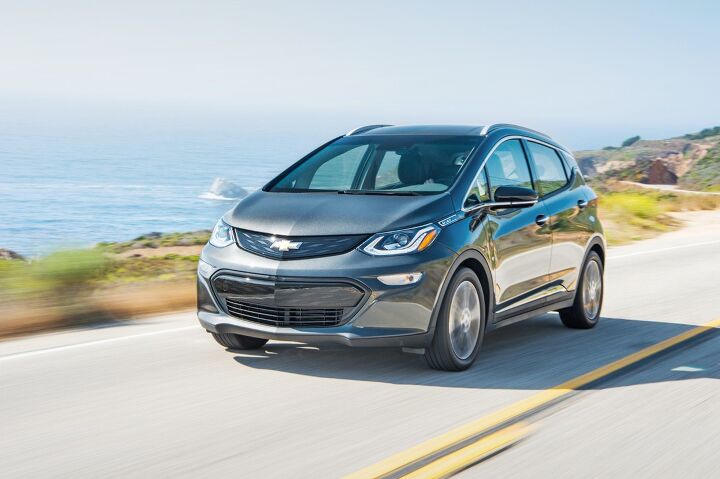
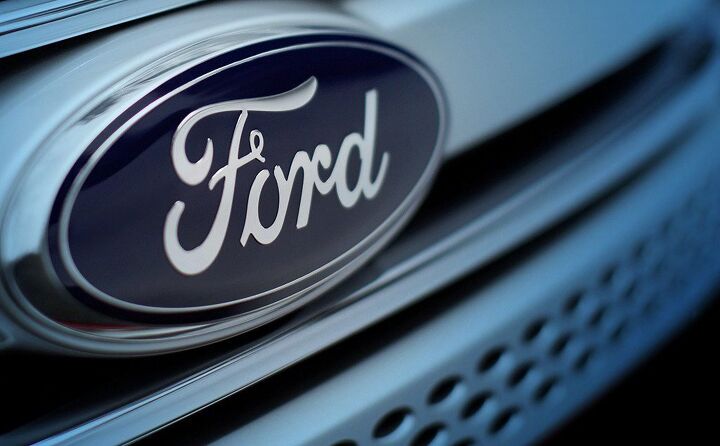
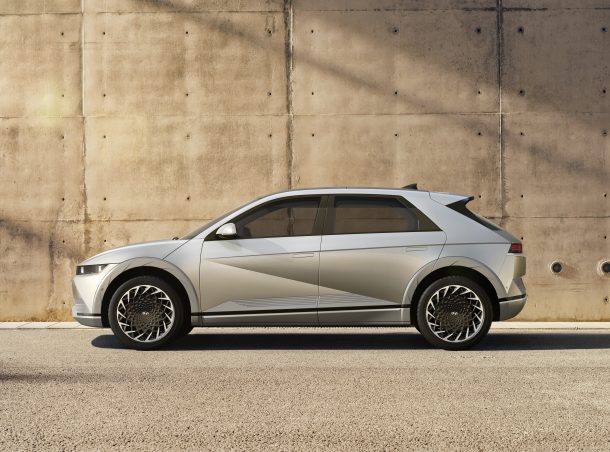




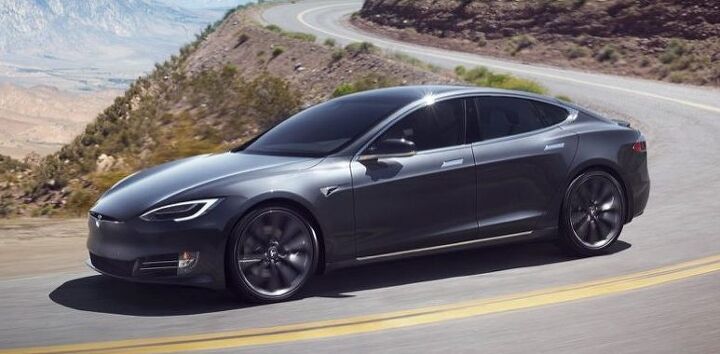




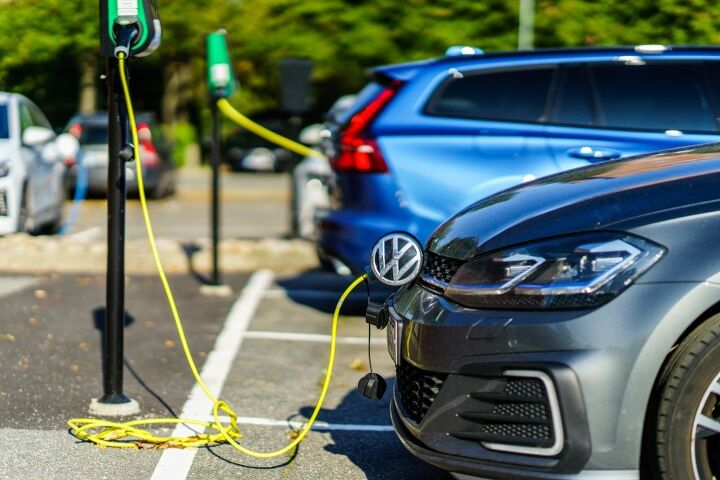














Recent Comments